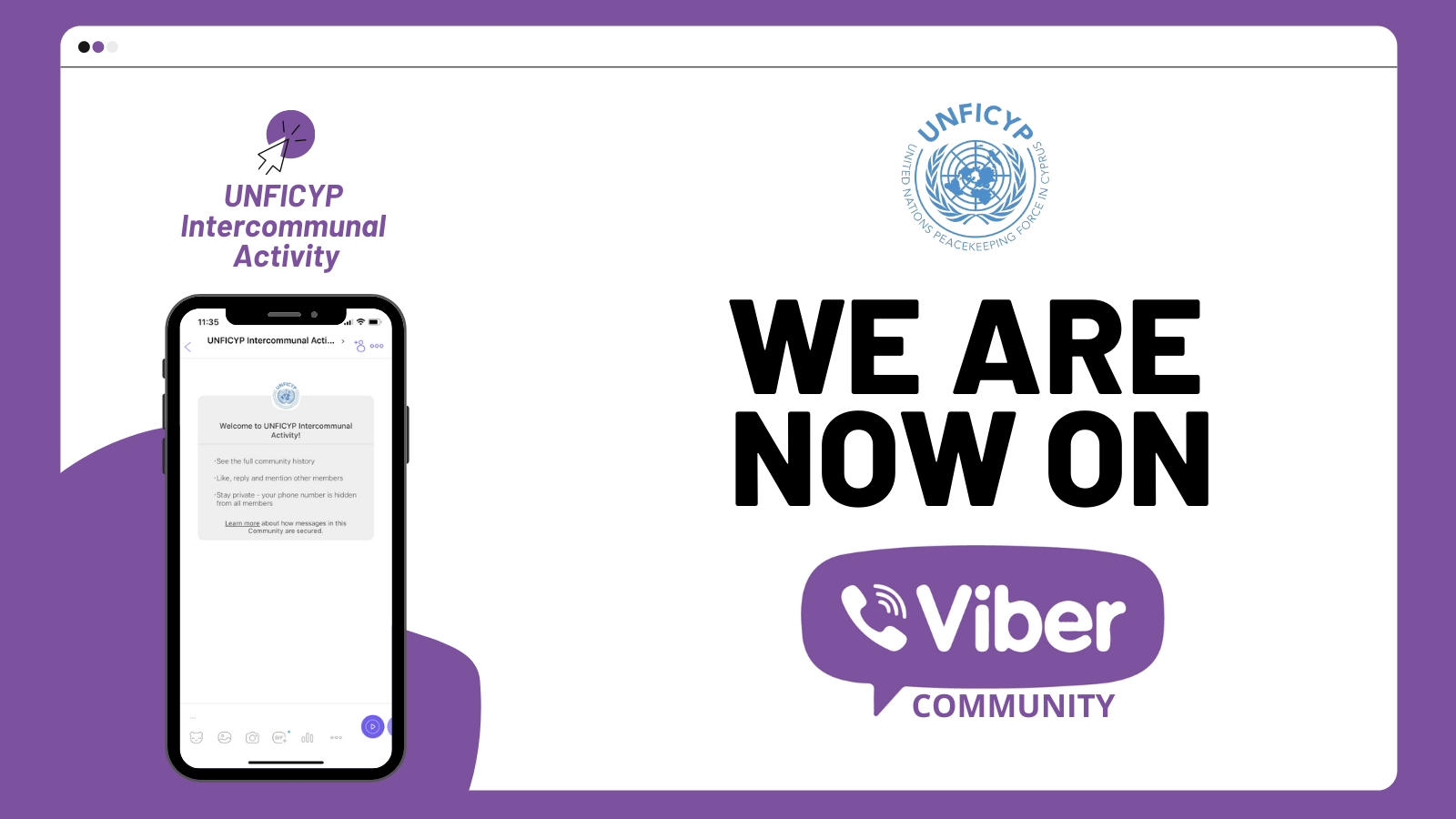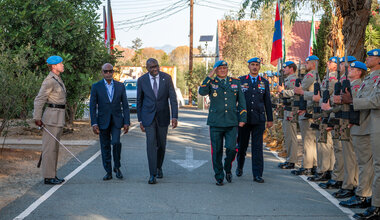Aimen Nabhani: The inclusion of women and youth in peace processes is vital!
Aimen Nabhani, is a 26-year-old young activist from Yemen who has been living in Cyprus for the past seven years. Cyprus, as he likes to describe, is his second home, as he feels like he strongly belongs to the Cypriot community.
Drawing from his country’s experience, which has been affected by conflict over the last years, Aimen also learned about the pain of the Cyprus conflict and peacebuilding efforts on the island while listening and participating in many workshops and events organized by civil society organizations.
“Young people and women are the most affected from conflict and, at the same time, they hold the highest potential in contributing to peacebuilding. The power they hold is valuable and essential for making a structural social change,” he tells.
Aimen’s passion for peacebuilding initiatives started with his successful participation in two programmes organized by UNFICYP. In 2021, he was selected as one of the UN Youth Champion for Environment and Peace, bringing the knowledge from one of his hobbies, bird watching, to the group of champions. Aimen is a member of the society for the protection of birds and wildlife in Cyprus (KUŞKOR), where they often go on field trips monitoring and identifying many species of migratory and residential birds on the island.
But the Youth Champions initiative wasn’t the only time Aimen teamed up with UNFICYP, in December last year, he joined a group of 40 young people in the series of workshops of the “Peacebuilding in Divided Societies” initiative also organized by the Mission.
His participation in both programmes made him feel like “taking the first steps towards “serving for peace’ on the island,” he states.
Sharing his experience from the latest programme, he notes that after attending the sessions it became “easy for me now to identify the different sources, stages, conditions and factors of a conflict. Certain attitudes can lead to conflicts and when conflicts are prolonged, there are some patterns to objectify,” he explains.
For him, “the inclusion of women and youth in peace processes is vital. Inclusion should be widened to go beyond the current representation to include more attention to substantive issues. We must build a strong civil society and promote social healing initiatives such as sustained dialogue, tolerance and cooperation to reach longer stability,” he says.
Noting that he would recommend this programme to his peers, he highlights that: “It’s very motivating to have had this programme with people coming across all the communities in Cyprus. It contributes to the peace culture on the island,” he concludes.
The “Peacebuilding in Divided Societies” programme was organised by UNFICYP in collaboration with the British High Commission and the British Council in Cyprus. The programme will continue this year with the ‘Young leaders in action: inclusion of women and youth in peacebuilding’ initiative from January to March.
 UN
UN United Nations Peacekeeping
United Nations Peacekeeping






